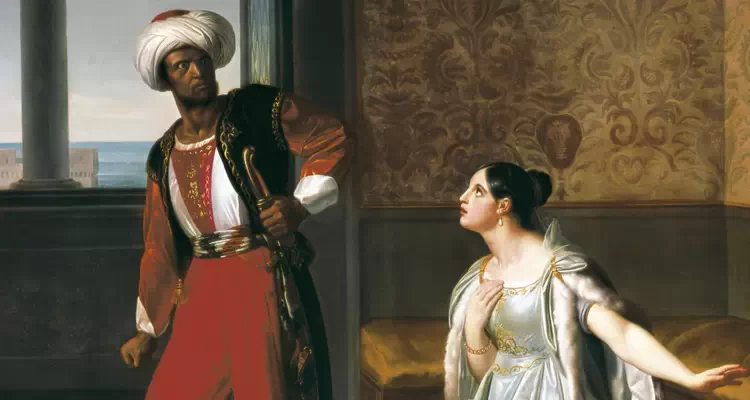Shakespeare’s famous tragedy Othello helps us shape our view of human nature, and understanding of what drives people to sometimes immoral action. The main idea is that jealousy is a great motivating influence, compelling individuals to carry out corrupt actions, and ruin previously treasured relationships, in order to get what they desire. As with any valued literary text, Shakespeare’s complex and intriguing characters are an integral part of Othello, driving the plot forward and making the situations that arise within the play seem believable.
Shakespeare’s manipulative language and his multifaceted characters are what make his plays so relevant today. A large part contributing to Othello’s realistic portrayal are his insecurities about his background, his appearance, age, speech, and culture, which all lead him to believe he does not fit into the Venetian society. His uncertainties make him prone to jealousy and vulnerable to Iago’s treacherous lies. The theme of jealousy is perfectly portrayed by the captivating character Othello, and the effects the grasping emotion has on him.
Through Iago’s calculated manipulation, Othello is persuaded to believe that his wife has been unfaithful to him. The lie causes Othello to become infuriatingly jealous, frustrated, and unable to control these emotions. This is shown through his use of repetition when he demands “O, blood, blood, blood,” metaphorically wishing his revenge by the deaths of Desdemona and Cassio, whom he believes have been disloyal.
As you can see, this wild emotion takes hold of Othello and causes havoc on his relationships, as he wishes death upon his once beloved wife and close friend. Othello’s distrust and suspicions are shown most prominently though the use of stage direction when he strikes Desdemona in public, an action considered to be dishonourable and break the norms of society. By doing this he demonstrates his lack of control derived from jealousy. The effects that jealousy has in morphing Othello’s character can be seen through his contrasting descriptions of Desdemona.
Using a biblical illusion, he originally refers to her in Act 1 as somebody who comes, “as truly as heaven”, to show the purity and beauty he sees in her. However, after the grip of jealously holds him in Act 4, he refers to her using the metaphor, “A closest lock and key of villainous secrets”, demonstrating his distrust and changed perception of her. I find it interesting how Iago plays on Othello’s jealous emotions, when the reason Iago seeks to destroy Othello is his own envy.

